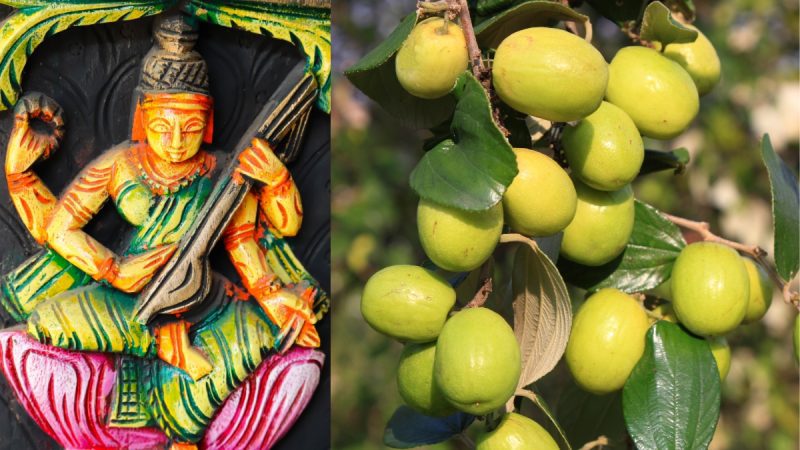The Hindu holiday of Basant Panchami falls on the fifth day of the month of Magh. It signifies the approach of spring and a season of rebirth and regeneration. Goddess Saraswati, the goddess of wisdom, knowledge, and the arts is worshipped on this auspicious occasion. To pay homage to Devi Saraswati and ask for her blessings on wisdom and enlightenment, Hindus celebrate and perform a variety of rituals. In Bengal, a unique tradition revolves around refraining from eating ber before the festival. Here’s all about it!
The Sacred Role Of Ber Fruit In Basant Panchami
On Basant Panchami, devotees adorn themselves in yellow attire. It is symbolic of the vibrant hues of spring. They offer prayers and hymns to the goddess, seeking her blessings for academic excellence and creative inspiration. The day holds cultural significance, with diverse customs observed across different regions of India.
In Bengal, where Saraswati Puja is a prominent celebration, a unique practice revolves around the consumption of ber fruit (also known as jujubes) before the festival. Ber is a fruit associated with Saraswati, especially her favourite. It ripens around Basant Panchami and coincides with the spring harvest.
That being said, Bengali Hindus abstain from ber fruit consumption before Basant Panchami. This fasting stems from the idea that if you eat ber before you offer it to the goddess on this auspicious day, she might not be pleased. As a sign of respect and appreciation, it is customary to present Devi Saraswati with the first harvest of ber.
Also Read: This Instagrammer Made Peppa Pig Idlis & Internet Can’t Get Over The Cuteness!
Unravelling Bengali Tradition’s Mystery
The act of offering ber to Saraswati on Basant Panchami holds symbolic significance. It is believed that by offering the first fruits of the season, devotees seek Saraswati’s blessings for wisdom, intellect, and academic success.
The blessed ber fruit is distributed as prasad following the completion of the puja rituals. It also signifies the divine blessings bestowed upon devotees. To further highlight the fruit’s cultural significance in the Basant Panchami celebrations, some households also make the traditional ber pickle, or kooler achaar, as part of the post-puja festivities. The custom of not eating ber before Saraswati Puja emphasises the devotion and awe that followers of Goddess Saraswati have for her.
Through these customs, followers of Goddess Saraswati reconfirm their spiritual bond with her.
Cover Image Courtesy: Canva
For more such snackable content, interesting discoveries and the latest updates on food, travel and experiences in your city, download the Curly Tales App. Download HERE.

